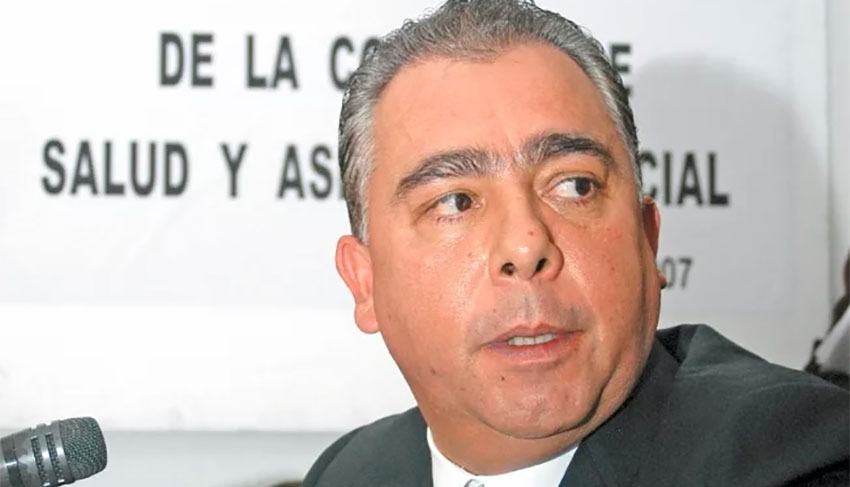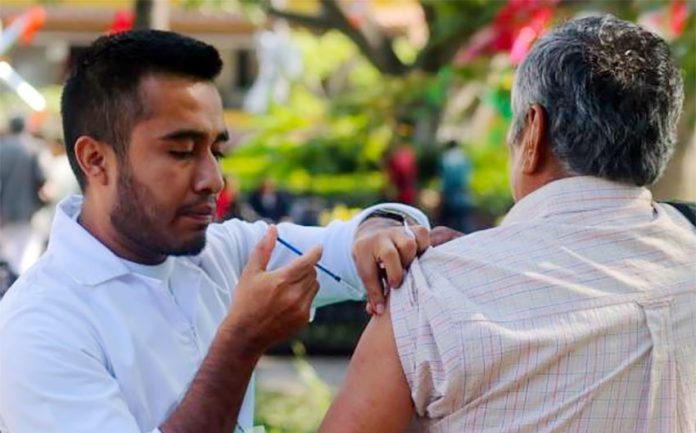The federal government’s new healthcare scheme will not be completely free as President López Obrador claimed, says the leader of the national health workers’ union (SNTSA).
Marco Antonio García Ayala told the newspaper El Universal that the “main failure” of the government is that it didn’t properly inform people about the services that the National Institute of Health for Well-Being (Insabi) will provide free of charge.
“People have questions, governors do as well, even the hospitals [have questions],” the SNTSA leader said.
“The president has said that everything is free, that’s an information error. He declared that Insabi would guarantee free care starting this year and of course that’s not the case,” García added.
He urged the government to carry out a publicity campaign to inform the public how Insabi will operate and thus “avoid uncertainty.”

Some patients have already complained because they were required to pay for medicines and medical services that they were led to believe would be free.
García also said that federal authorities should meet with state governors to avoid the latter making negative statements about Insabi.
Governors of several states, including Aguascalientes, Guanajuato and Querétaro, have not yet signed an agreement with the federal government to eliminate the Seguro Popular program and replace it with the Insabi scheme, which is designed to provide healthcare to people not covered by the IMSS and ISSSTE social security plans.
The SNTSA leader said the governors who haven’t signed the agreement were within their right to refuse to do so if they didn’t receive timely and accurate information about the new program. García also said that states have a legal right to continue receiving federal resources for healthcare even if they don’t sign on to Insabi.
However, Insabi director Juan Antonio Ferrer Aguilar said in an interview published Monday by the newspaper La Jornada that Mexico’s 32 federal entities will receive the resources to provide free healthcare at primary and secondary facilities only after they have signed agreements with federal authorities.
Twenty-two health secretariats across the country have so far agreed to the implementation of Insabi, he said.
Referring to the clarification Insabi made last week that medical care is only free at primary and secondary healthcare facilities, and not tertiary-level, Ferrer said the 23 national health institutes and highly-specialized hospitals are not currently included in the Insabi scheme.
However, Insabi will sign agreements with the facilities later this year, he said, explaining that doctors there will continue to perform 66 complex surgical procedures free of charge and that treatment for 30 other conditions will also be provided without cost.
Probed about where the government went wrong in explaining the new healthcare scheme and why there were complaints from patients who had to pay for medical treatment, Ferrer responded that “a change always confronts resistance.”
“The legal reform [to create Insabi] is aimed at the people and not the financial issue, as was the focus of Seguro Popular. There was a trend towards privatization. Now it’s different, the participation of the state secretariats of health will be strengthened; they will have the resources . . . [they require]. They should ask us for what they need to function: equipment, medical personnel . . .There’s only one requirement – everything must benefit the people.”
The Insabi chief said that he would meet this week with officials from the states that have not yet agreed to the implementation of the new scheme, adding that medicine and personnel from the Médicos del Bienestar (Well-Being Doctors) program will be sent to the signatory entities.
The Insabi scheme, which has a budget of 112 billion pesos (US $6 billion) in 2020, “will be consolidated this year,” Ferrer declared.
Source: El Universal (sp), La Jornada (sp)
